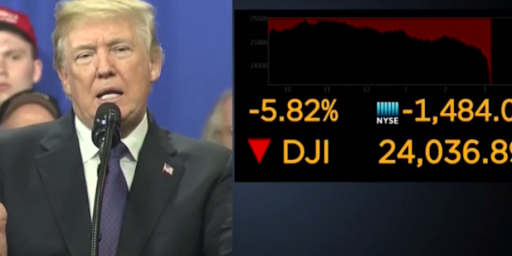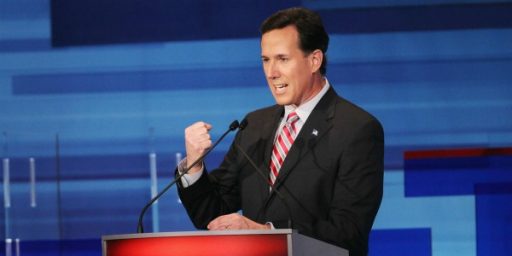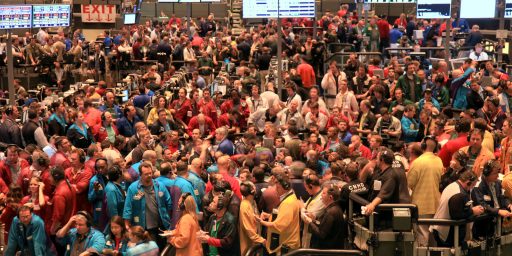Can Markets Predict the Future?
The National Bureau of Economic Research has an interesting write up on prediction markets (like TradeSports.com and the Iowa Electronic Markets) the idea underlying the predictive power of these types of markets is the Efficient Market hypothesis which holds that with an “efficient market the market price will be the best predictor of the event”.
Wolfers and Zitzewitz begin by noting that much of the enthusiasm for prediction markets derives from the efficient markets hypothesis. In a truly efficient prediction market, the market price will be the best predictor of the event, and no combination of polls or other information can be used to improve on the market-generated forecasts. Wolfers and Zitzewitz do not insist that prediction markets are literally perfectly (or fully) efficient; however, they acknowledge that a number of successes in these markets, both within firms and with regard to public events such as presidential elections, have generated substantial interest among both political and financial economists.
One thing I thought was interesting with the markets for predicting the presidential outcome was how the leaks of exit polling affected the prices for the contracts for Bush and Kerry. While the above says that polling can’t improve on the markets, note that there is nothing about polling adversely influencing the markets. My guess is that in the future exit polling will be given less weight in terms of their accuracy and predictive power.1
The other interesting thing are the other examples of where predictive markets have been used.
Even some prediction markets with very small participation have shown striking results. An internal market at Hewlett-Packard produced more accurate forecasts of printer sales than did the firm’s internal processes, and at Siemens an internal market predicted the firm would definitely fail to deliver a software project on time, even as traditional planning tools said the deadline could be met. In each firm, the traders numbered only between 20 and 60 employees.
The closing point is worth repeating,
Prediction markets have their limitation, the researchers caution, but they may be useful as a supplement to more traditional means of prediction, such as opinion surveys, expert panels, consultants, and committees.
_
1This is one of my complaints about much of current statistics. Many people focus on things like confidence intervals, margin of error, and significance testing and forget that a (statistical) models true validity is determined by its predictive accuracy.





